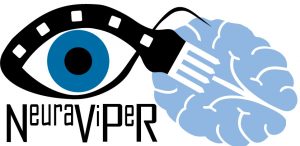1 Postdoctoral researcher positions available at the Bioengineering Institute of the University Miguel Hernández, Alicante, Spain, in the framework of the Project “Neural Active Visual Prosthesis for Restoring Function” (NeuraViPeR) funded by the European Commission (FET Open). This project involves several universities and research organisations from 5 European countries (Switzerland, Belgium, Netherland, Germany and Spain), and aims to develop new technologies for restoring vision in blind patients.
Around 354 million people world-wide are visually impaired (40 million are blind) and around 50% cannot benefit from existing and prospective treatments with gene and stem therapies, pharmaceuticals, and retinal prosthesis. Cortical neuroprostheses are a promising approach for these patients, but there are still many unresolved issues delaying its development. The NeuraViPeR project aims to create breakthrough technology for a functional long-life high-channel count brain stimulation and recording implant, that could help to many of these blind persons.
Postdoctoral researchers will be involved in the development of innovative approaches for stimulating the visual cortex with high-electrode-count flexible microelectrode arrays, in animal experiments using simultaneous stimulation and recordings with multielectrode arrays, in the design of a bioinspired encoder optimized for a cortical visual neuroprosthesis, and in the creation of adaptive machine learning algorithms for a new brain-computer interface technology. Furthermore, they will collaborate in the framework of a clinical trial designed to study the electrical parameters needed for eliciting visual perceptions through electrical stimulation of the human cortex using intracortical microelectrodes in blind volunteers (https://clinicaltrials.gov/ct2/show/NCT02983370).
Candidates must be highly motivated and able to work in a highly interdisciplinary environment. Strong background in at least one of the following areas is preferred: visual prostheses, brain-computer interfaces, multielectrode arrays, neuroscience, neuroengineering or computational neuroscience. Experience in neuroprostheses, clinical trials, deep learning techniques and programming skills will be advantageous.
Interested applicants, with a strong motivation in applied neuroscience and neural engineering, should contact Prof. Eduardo Fernández and submit by email (to: ): a curriculum vitae and a brief description of their background and scientific interests.
Job Information:
Employment start date: 1 September 2020
Duration: 3 years
More information: https://www.neuraviper.eu



